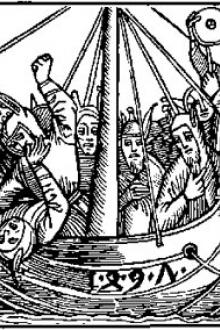author - "Sebastian Brant"

paved the way for the Reformation. Brandt's fools are represented as contemptible and loathsome rather than _foolish_, and what he calls follies might be more correctly described as sins and vices.
"The 'Ship of Fools' is written in the dialect of Swabia, and consists of vigorous, resonant, and rhyming iambic quadrameters. It is divided into 113 sections, each of which, with the exception of a short introduction and two concluding pieces, treats independently of a certain class of fools or vicious persons; and we are only occasionally reminded of the fundamental idea by an allusion to the ship. No folly of the century is left uncensured. The poet attacks with noble zeal the failings and extravagances of his age, and applies his lash unsparingly even to the dreaded Hydra of popery and monasticism, to combat which the Hercules of Wittenberg had not yet kindled his firebrands. But the poet's object was not merely to reprove and to animadvert; he instructs also, and shows the fools the way to the land of w

paved the way for the Reformation. Brandt's fools are represented as contemptible and loathsome rather than _foolish_, and what he calls follies might be more correctly described as sins and vices.
"The 'Ship of Fools' is written in the dialect of Swabia, and consists of vigorous, resonant, and rhyming iambic quadrameters. It is divided into 113 sections, each of which, with the exception of a short introduction and two concluding pieces, treats independently of a certain class of fools or vicious persons; and we are only occasionally reminded of the fundamental idea by an allusion to the ship. No folly of the century is left uncensured. The poet attacks with noble zeal the failings and extravagances of his age, and applies his lash unsparingly even to the dreaded Hydra of popery and monasticism, to combat which the Hercules of Wittenberg had not yet kindled his firebrands. But the poet's object was not merely to reprove and to animadvert; he instructs also, and shows the fools the way to the land of w